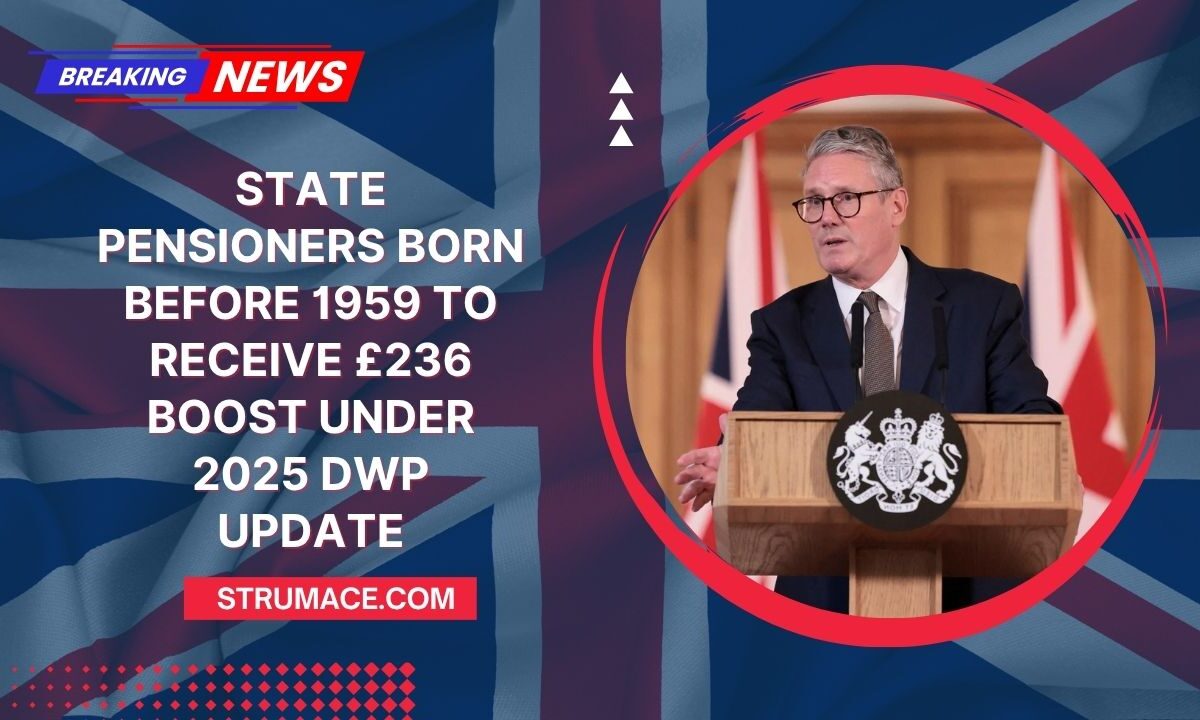State pensioners born before 1959 are set to receive a £236 increase in their payments starting 2025, according to recent forecasts tied to the UK government’s triple lock policy.
This annual boost aims to ensure pensions keep pace with inflation and rising wages—providing much-needed support for millions of retirees across the country.
If you’re on the new state pension or the basic state pension, here’s what you need to know about this change, how much more you’ll receive, and what the future holds for state pension policy.
What Is the Triple Lock?
The triple lock is a government guarantee that the state pension will rise every by the highest of the following:
- 2.5%
- Average earnings growth
- Consumer price inflation (CPI)
This policy ensures that pensioners do not lose purchasing power and are protected against the rising cost of living.
For 2025, based on current forecasts, the increase is expected to be the minimum 2.5%, as inflation and wage growth figures remain relatively low.
How Much Is the State Pension Increasing?
According to government planning forecasts, the weekly amount for those on the new state pension is expected to rise from £230 to £236 in 2025.
| Pension Type | Current Weekly Amount (2024-25) | Expected Weekly Amount (2025-26) | Annual Increase |
|---|---|---|---|
| New State Pension | £230 | £236 | £236 |
| Basic State Pension | Varies by NI contributions | Increase will apply proportionally | Based on eligibility |
This brings the annual total for new state pensioners to £12,272, up from £11,973—an increase of exactly £299 over the year, though the average figure based on forecasted payment periods equals a £236 net boost.
Who Will Receive This £236 Boost?
- All state pensioners born before 1959 and receiving either the basic or new state pension are expected to benefit.
- Those who reached State Pension age after April 6, 2016, are on the new state pension, which will see the full increase.
- Pensioners on the basic state pension (pre-2016 retirees) will receive a proportionate rise, depending on their National Insurance record.
Tax Implications for Pensioners
While the increase helps many stay financially afloat, it also pushes some closer to the personal allowance threshold, currently frozen at £12,570.
- With the new state pension at £12,272, some pensioners may be close to becoming taxable if they also have:
- Private pension income
- Part-time work
- Rental or savings income
More retirees may begin paying income tax in the coming years if allowances remain frozen.
Pressure to Reform the Triple Lock
Despite its popularity, some economists argue that the triple lock is unsustainable in its current form, citing:
- Rising costs to the public purse
- Increasing life expectancy
- Pressure on working-age taxpayers
There are growing calls for a reformed version of the policy that still protects pensioners while being more economically balanced.
The £236 state pension increase set for 2025 brings welcome news to millions of pensioners born before 1959. While modest, this rise under the triple lock policy ensures ongoing protection against inflation and cost-of-living pressures.
As discussions around reform continue, pensioners should stay informed about how these changes may affect their income, tax obligations, and long-term financial planning.
FAQs
When will the £236 pension increase take effect?
The new rates will begin from 2025, at the start of the new financial year.
Will everyone receive the full £236 increase?
Only those on the full new state pension will receive the entire amount. Others will see a proportional increase.
Will the state pension rise push me into paying tax?
If your total income exceeds £12,570, you may be subject to income tax, depending on your personal circumstances.




